Composers
Cyril Meir Scott (27 September 1879 – 31 December 1970) was an English composer, writer, and poet.
Scott was born in Oxton, Birkenhead, Cheshire) in northern England, United Kingdom, to Henry Scott, a shipper and scholar of Greek and Hebrew, and Mary Scott (née Griffiths), an amateur pianist. He showed a talent for music from an early age and was sent to the Hoch Conservatory in Frankfurt, Germany to study piano in 1892 at age 12. He belonged to the Frankfurt Group, a circle of composers who studied at the Hoch Conservatory in the late 1890s. His first symphony was performed nine years later.
In 1902 he met the pianist Evelyn Suart, with whom he had a long artistic association. She championed his music, premiering many of his works, and introducing him to his publisher, Elkin, with whom he remained for the rest of his life. Evelyn Suart was also a Christian Scientist, and it was through her that Scott became interested in metaphysics. Scott dedicated his Scherzo, Op. 25 to Evelyn Suart. (Her daughter Diana Gould was a noted ballerina and the second wife of Yehudi Menuhin.)
In 1909 he recorded six of his own works for Welte-Mignon.
Scott married Rose L. Allatini in May 1921. They had two children: Vivien Mary Scott (born 1923) and Desmond Cyril Scott (born 1926). He separated from Rose following World War II. In 1943, he met Marjorie Hartston, who remained his companion until his death.
He composed up until the last three weeks of his life, dying at the age of 91. By the time of his death Scott was little regarded. Now his work is coming strongly back into favour. His Second Symphony was premiered by Sir Henry J. Wood at a 1903 Prom Concert and was extremely well received, although it inexplicably did not receive subsequent performances.
Scott was romanticist with some impressionist qualities. His harmonic treatments and piano works depict the exotic.
As a composer, Scott wrote around four hundred works, including four symphonies, four operas, two piano concertos, four oratorios, four concertos (for violin, cello, oboe and harpsichord) and several overtures (Nativity Hymn (1913), Mystic Ode (1932), Ode to Great Men (1936), and Hymn of Unity (1947), as well as tone poems, chamber music and songs. Between 1903 and 1914 Scott wrote more works for the piano than any other composer with the exception of Scriabin. He was called the "Father of modern British music" by Eugene Goossens, and was also admired by Debussy, Percy Grainger, Sorabji, Richard Strauss and Stravinsky. He was sometimes referred to as "the English Debussy".
The record label Chandos is planning to record all Scott's major orchestral compositions. So far, they have released three CD's: The first volume containing the tone poem Neptune (1935), Symphony No. 3 The Muses (1939) and the second piano concerto (1958). The second volume containing the tone poem "Early One Morning" (1931) , Symphony No. 4 (1952) and the first piano concerto (1914). The third volume containing the violin concerto, "Festival Overture", "Aubade" and "Three Symphonic Dances".
Cameo Classics has made the premiere recording of Scott's Harpsichord Concerto. The soloist was Michael Laus, who conducted the Malta Philharmonic Orchestra from the keyboard in 2011.
Some of Scott's works for piano were recorded for the ABC Classics Eloquence label by the Australian pianist Dennis Hennig in 1991. He intended to record the complete piano works, but died before that project was finished.
In 2001, a piece thought for many decades to be lost, the Sonatina for guitar (1927), was discovered by Angelo Gilardino in the archives of Andrés Segovia, for whom the piece was originally written. It has since been recorded by the German guitarist Tilman Hoppstock, among others. His Pastoral and Reel for cello and piano was recorded by Julian Lloyd Webber and John Lenehan for Philips Classics in 1994. His Concerto for Harpsichord and Orchestra (1937) has recently been reconstructed by Jory Vinikour and will be given its first hearing since its premiere by the Orion Chamber Orchestra, Toby Purser conducting, at St. John's, Smith Square with Jory Vinikour as soloist in September 2008.
In addition to his work as a composer and performer, Scott wrote poetry and prose. He was highly interested in the occult and in health foods. He described his beliefs as a blend of science, philosophy, and religion.
Recently Added
Biography
Cyril Meir Scott (27 September 1879 – 31 December 1970) was an English composer, writer, and poet.
Scott was born in Oxton, Birkenhead, Cheshire) in northern England, United Kingdom, to Henry Scott, a shipper and scholar of Greek and Hebrew, and Mary Scott (née Griffiths), an amateur pianist. He showed a talent for music from an early age and was sent to the Hoch Conservatory in Frankfurt, Germany to study piano in 1892 at age 12. He belonged to the Frankfurt Group, a circle of composers who studied at the Hoch Conservatory in the late 1890s. His first symphony was performed nine years later.
In 1902 he met the pianist Evelyn Suart, with whom he had a long artistic association. She championed his music, premiering many of his works, and introducing him to his publisher, Elkin, with whom he remained for the rest of his life. Evelyn Suart was also a Christian Scientist, and it was through her that Scott became interested in metaphysics. Scott dedicated his Scherzo, Op. 25 to Evelyn Suart. (Her daughter Diana Gould was a noted ballerina and the second wife of Yehudi Menuhin.)
In 1909 he recorded six of his own works for Welte-Mignon.
Scott married Rose L. Allatini in May 1921. They had two children: Vivien Mary Scott (born 1923) and Desmond Cyril Scott (born 1926). He separated from Rose following World War II. In 1943, he met Marjorie Hartston, who remained his companion until his death.
He composed up until the last three weeks of his life, dying at the age of 91. By the time of his death Scott was little regarded. Now his work is coming strongly back into favour. His Second Symphony was premiered by Sir Henry J. Wood at a 1903 Prom Concert and was extremely well received, although it inexplicably did not receive subsequent performances.
Scott was romanticist with some impressionist qualities. His harmonic treatments and piano works depict the exotic.
As a composer, Scott wrote around four hundred works, including four symphonies, four operas, two piano concertos, four oratorios, four concertos (for violin, cello, oboe and harpsichord) and several overtures (Nativity Hymn (1913), Mystic Ode (1932), Ode to Great Men (1936), and Hymn of Unity (1947), as well as tone poems, chamber music and songs. Between 1903 and 1914 Scott wrote more works for the piano than any other composer with the exception of Scriabin. He was called the "Father of modern British music" by Eugene Goossens, and was also admired by Debussy, Percy Grainger, Sorabji, Richard Strauss and Stravinsky. He was sometimes referred to as "the English Debussy".
The record label Chandos is planning to record all Scott's major orchestral compositions. So far, they have released three CD's: The first volume containing the tone poem Neptune (1935), Symphony No. 3 The Muses (1939) and the second piano concerto (1958). The second volume containing the tone poem "Early One Morning" (1931) , Symphony No. 4 (1952) and the first piano concerto (1914). The third volume containing the violin concerto, "Festival Overture", "Aubade" and "Three Symphonic Dances".
Cameo Classics has made the premiere recording of Scott's Harpsichord Concerto. The soloist was Michael Laus, who conducted the Malta Philharmonic Orchestra from the keyboard in 2011.
Some of Scott's works for piano were recorded for the ABC Classics Eloquence label by the Australian pianist Dennis Hennig in 1991. He intended to record the complete piano works, but died before that project was finished.
In 2001, a piece thought for many decades to be lost, the Sonatina for guitar (1927), was discovered by Angelo Gilardino in the archives of Andrés Segovia, for whom the piece was originally written. It has since been recorded by the German guitarist Tilman Hoppstock, among others. His Pastoral and Reel for cello and piano was recorded by Julian Lloyd Webber and John Lenehan for Philips Classics in 1994. His Concerto for Harpsichord and Orchestra (1937) has recently been reconstructed by Jory Vinikour and will be given its first hearing since its premiere by the Orion Chamber Orchestra, Toby Purser conducting, at St. John's, Smith Square with Jory Vinikour as soloist in September 2008.
In addition to his work as a composer and performer, Scott wrote poetry and prose. He was highly interested in the occult and in health foods. He described his beliefs as a blend of science, philosophy, and religion.
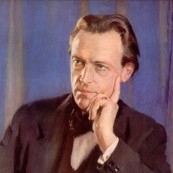

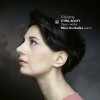
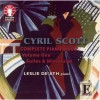
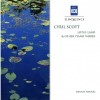
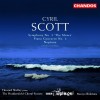


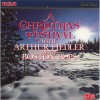
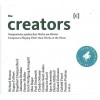
![The Heifetz Collection, Volume 1 [3 CD ]](http://static.classicalm.com/repository/disk-cover/small/715-img1315088819334029.jpg)
![The Heifetz Collection, Volume 3 [2 CD]](http://static.classicalm.com/repository/disk-cover/small/719-img1315174118757085.jpg)